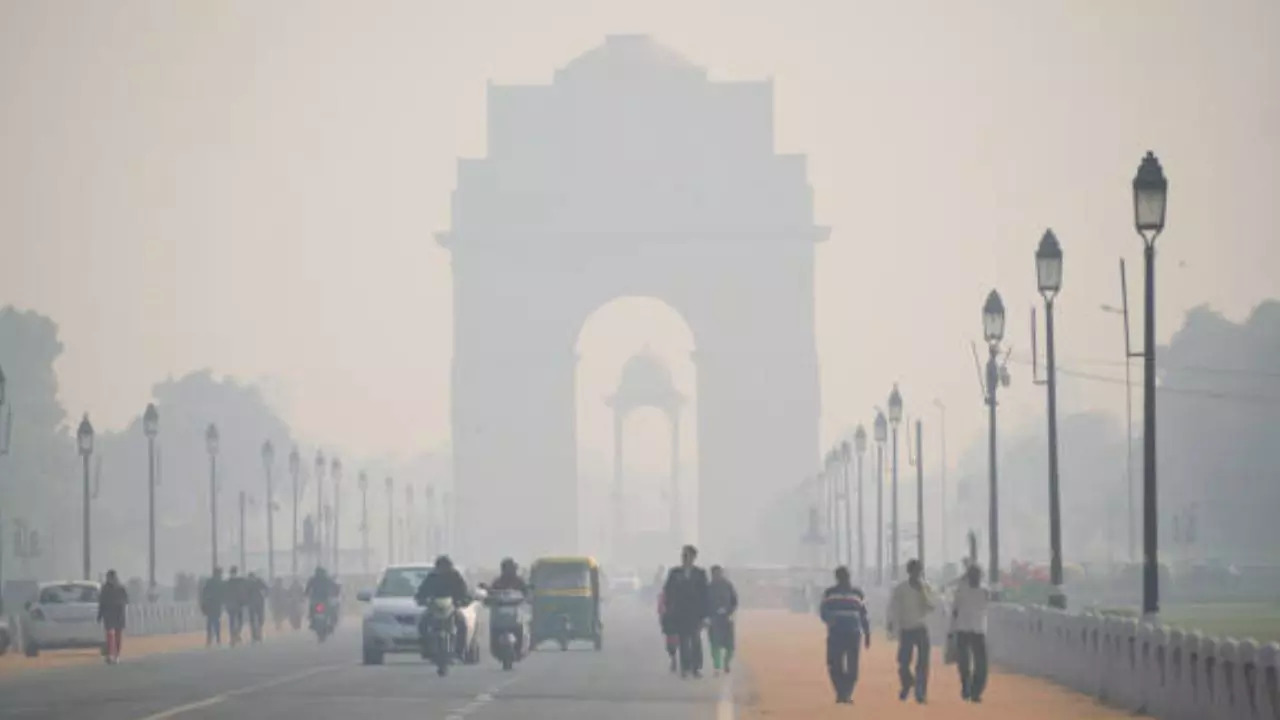
Delhi-NCR’s air quality has become a major health hazard, with Air Quality Index (AQI) levels recently spiking to dangerous levels. As the winter season sets in, air pollution in the region continues to worsen due to smog. This increase in pollution levels raises pressing concerns, particularly for people with outdoor exercise routines like morning walks.
Many are left wondering whether it's safe to continue outdoor activities as exposure to the air can pose serious health risks impacting respiratory and cardiovascular health. Engaging in outdoor physical activities like walking or jogging can increase the amount of polluted air inhaled, increasing the negative effects of pollutants. When we exercise, our breathing rate and depth increase, meaning more air—and therefore more pollutants—enters the lungs.
For people with respiratory problems, high-intensity outdoor activity can aggravate symptoms, leading to coughing, wheezing, shortness of breath, and other respiratory complications. Further, long-term exposure to poor air quality can contribute to chronic respiratory and heart issues, increasing the risk of lung infections, strokes, and even premature death. Is It Safe To Go For Morning Walks?Outdoor exercise, especially activities like brisk walking, leads to heavier breathing, which increases the intake of polluted air directly into the lungs.
As a result, people are at higher risk of inhaling harmful particles. According to the World Health Organization (WHO), prolonged exposure to air pollution increases the risk of developing respiratory diseases, cardiovascular complications, and even certain types of cancer. Alternatives to Morning WalksGiven the current AQI levels, health experts recommend avoiding outdoor activities in the early morning when pollution levels are often at their peak.
Here are some alternatives to consider for maintaining a healthy exercise routine while minimizing exposure to polluted air: - Indoor Workouts: Switch to indoor exercises such as yoga, Pilates, or indoor walking routines. Home workouts or gym visits can be a safer alternative to outdoor activities. - Air-Purified Spaces: Many fitness centres are equipped with air purifiers to maintain safer air quality indoors.
Exercising in these controlled environments can reduce exposure to harmful pollutants. - Masks and Protective Gear: If you must go outdoors, consider using an N95 mask, which can filter out a large percentage of particulate matter. While not a foolproof solution, wearing a mask can help reduce inhalation of pollutants.
- Change Your Timings: If air quality improves later in the day, plan your outdoor activities during times when pollution levels are relatively lower, often in the afternoon. Several AQI monitoring apps provide real-time air quality data to help you plan accordingly. Precautions for Better HealthWhile the benefits of a morning walk are well-known, maintaining health and safety in extreme pollution conditions is crucial.
Here are some additional tips to stay healthy: - Use an Air Purifier at Home: Keeping air purifiers running indoors can help reduce indoor pollution levels. - Stay Hydrated: Drinking water helps flush out toxins and keeps respiratory passages moist, offering some relief from pollution-related irritation. - Limit Other Sources of Indoor Pollution: Avoid burning candles, using strong cleaning chemicals, or smoking indoors, which can exacerbate indoor pollution levels.
Get Latest News Live on Times Now along with Breaking News and Top Headlines from Health and around the world..














